 Petzlover
Petzlover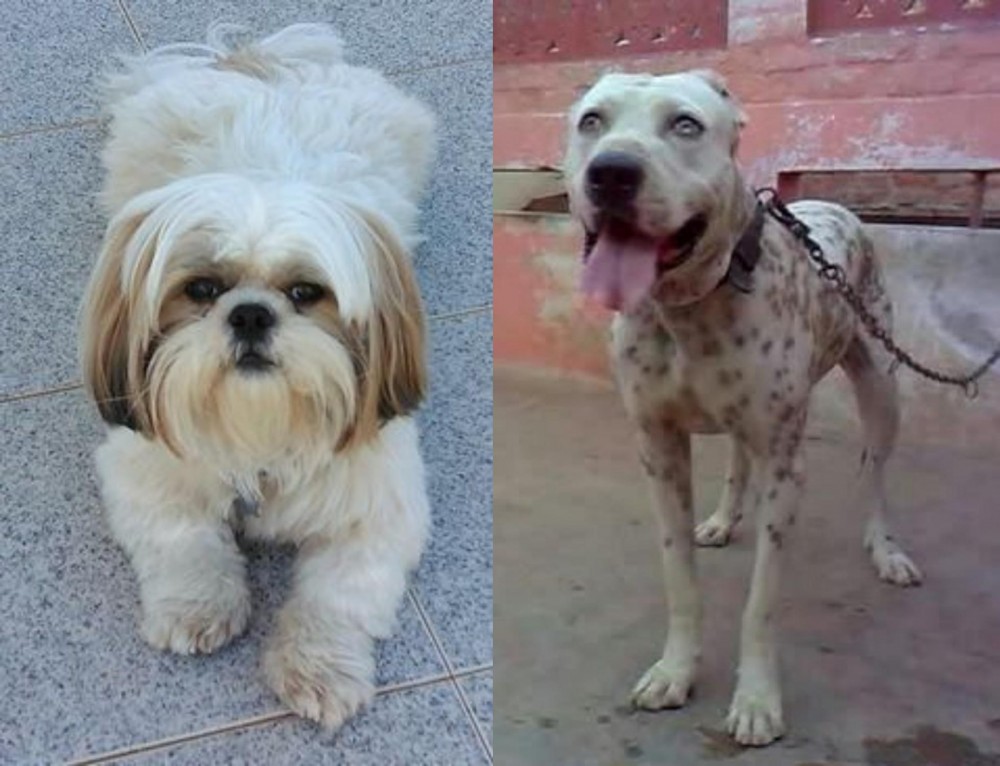 Shih Tzu is originated from China but Sindh Mastiff is originated from India. Shih Tzu may grow 56 cm / 22 inches shorter than Sindh Mastiff. Shih Tzu may weigh 61 kg / 134 pounds lesser than Sindh Mastiff. Shih Tzu may live 6 years more than Sindh Mastiff. Both Shih Tzu and Sindh Mastiff has almost same litter size. Shih Tzu requires High Maintenance. But Sindh Mastiff requires Low Maintenance
Shih Tzu is originated from China but Sindh Mastiff is originated from India. Shih Tzu may grow 56 cm / 22 inches shorter than Sindh Mastiff. Shih Tzu may weigh 61 kg / 134 pounds lesser than Sindh Mastiff. Shih Tzu may live 6 years more than Sindh Mastiff. Both Shih Tzu and Sindh Mastiff has almost same litter size. Shih Tzu requires High Maintenance. But Sindh Mastiff requires Low Maintenance
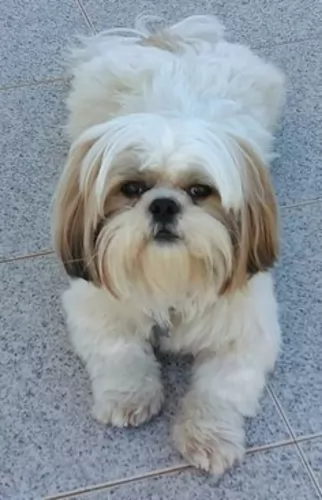 The Shih Tzu is an Imperial Chinese breed developed by palace breeders hundreds of years ago with breed stock from the Tibetan lines. It is quite probable that the Shih Tzu was originally a cross between two Sino-Tibetan ancient dogs – the Pekingese and the Lhasa Apso. Based on their looks, the Shih Tzu means the lion dog, but they were really very pampered palace dogs living with the Chinese emperors and families. The emperors were always gifting the breeders who developed the most affectionate, gentle and beautiful Shih Tzus.
The Shih Tzu is an Imperial Chinese breed developed by palace breeders hundreds of years ago with breed stock from the Tibetan lines. It is quite probable that the Shih Tzu was originally a cross between two Sino-Tibetan ancient dogs – the Pekingese and the Lhasa Apso. Based on their looks, the Shih Tzu means the lion dog, but they were really very pampered palace dogs living with the Chinese emperors and families. The emperors were always gifting the breeders who developed the most affectionate, gentle and beautiful Shih Tzus.
Until the 1930’s the Shih Tzu was not known to the world outside the emperor’s palace. Once the breed did come out from behind the palace walls, they were immediately popular. Much debate went on about how to refine the breed as clubs began to spring up in Peking and then in England. It was not until 1969 the Shih Tzu was recognized and entered in the AKC Stud Book.
While the original Shih Tzu might have been a mix between the Pekingese and the Lhasa Apso, today’s breed spread around the world after the second world war. In Europe in the 1930’s the breed was classified as Apsos. In 1935 the first Shih Tzu Club of Europe was formed, and the first standard was written, and the breed was categorized as the Shih Tzu.
Following World War II, soldiers brought the dogs to the States from Europe. By the 1950’s the breed was growing in popularity and the AKC recognized the breed in 1969 as members of the Toy Group. They are now recognized by all major kennel clubs throughout the western world. They are recognized by the Federation Cynoloqique Internationale in the Companion and Toy Group, among Tibetan breeds.
The Shih Tzu is a good watchdog, but it was bred to be a companion animal. It is a friendly, open breed that welcomes strangers. They are great with other animals and children as well as adults.
 The Sindh Mastiff or Alangu Mastiff is an ancient breed believed to have been useful for guarding war camps, but today he is both a guard dog and pet.
The Sindh Mastiff or Alangu Mastiff is an ancient breed believed to have been useful for guarding war camps, but today he is both a guard dog and pet.
There isn’t too much information available to us about the origins of this dog but it is thought that they came about from breeding the Indian Mastiff and the Alaunt.
He is likened to the Bully Kutta dog, a huge Mastiff breed from Pakistan. This dog is one of three mastiff type dog breeds to be found around Persia and India. Unfortunately because of its aggressive nature, it has been used for dog fighting.
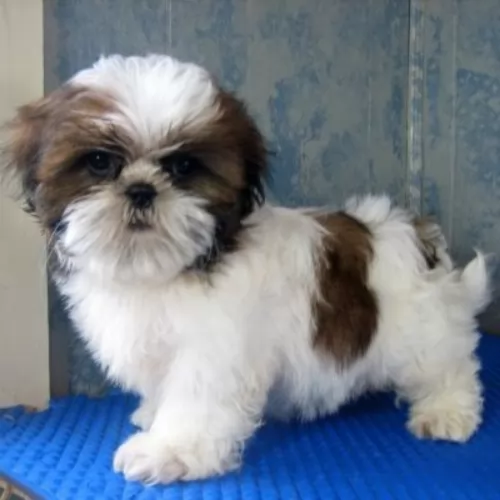 This is a breed of lively, sturdy and alert little dogs with a beautiful double coat that is flowing and long. In its full glory the Shih Tzu coat is touching the floor all the way around the dog. The dog’s bearing is as royal as its history, arrogantly carrying his head high and his tail curving over his back.
This is a breed of lively, sturdy and alert little dogs with a beautiful double coat that is flowing and long. In its full glory the Shih Tzu coat is touching the floor all the way around the dog. The dog’s bearing is as royal as its history, arrogantly carrying his head high and his tail curving over his back.
The Shih Tzu is a solid, compact breed with weight and substance. They may be a small dog, but they are a strong one. They have large dark eyes with a short muzzle and fur covered drop ears. They are just a little longer than they are tall with a distinct underbite.
There are a few differences between the European or UK Kennel Club standard and the American Kennel Club AKC standard. As opposed to the UK standard the AKC standard states that:
• The hindquarters are muscular while the front are straight. They are balanced in that they are not too long or too short.
 The Alangu Mastiff is a huge dog, standing anything from 80 – 84cm in height and weighing 62 – 68kg. He is muscular and strong. He has a broad skull with small pricked ears, wide apart eyes and a thick neck.
The Alangu Mastiff is a huge dog, standing anything from 80 – 84cm in height and weighing 62 – 68kg. He is muscular and strong. He has a broad skull with small pricked ears, wide apart eyes and a thick neck.
The legs are powerful and muscled, the skin fairly loose over the body with hair that is short ad dense. The coat can be white, tan, fawn or brindle.
Sometimes the dog has a black mask. The tail is thick and long these days, although it used to be docked.
This dog has a domineering, ferocious nature and that is why it has been sought after as a guard dog. He is territorial and thought to be aggressive. He is therefore not a good choice of dog for first time dog owners. He is also not a good choice for when there are children in the home or even small pets.
He is strong willed and fairly difficult to train. Of course it is a known fact that a puppy turns out a lot like its owners. Good owners produce a good tempered dog, but you have to be careful with this dog as it has aggressive tendencies.
Certainly it will require a strong, firm consistent owner, and then the dog is capable of becoming loyal and devoted. Training and socialization are possible as he is intelligent, and it does help to make him more submissive to his human owners.
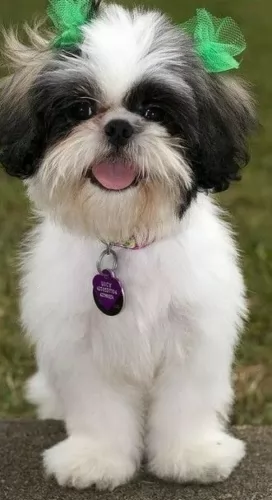 2.Special talents – they were bred to be companion animals. They are friendly and loyal.
2.Special talents – they were bred to be companion animals. They are friendly and loyal.
3.Adaptability Yes very much so. They can live in an apartment or on a farm. It doesn’t matter and they don’t need a yard.
 Domineering and quite aggressive, particularly if brought up that way, the Sindh Mastiff has a fairly long history of dog fighting. He is an intelligent dog and should be trained and socialized. He is also very territorial. He isn’t suitable for first time dog owners as he does have a bit of a reputation as being a fairly ferocious dog.
Domineering and quite aggressive, particularly if brought up that way, the Sindh Mastiff has a fairly long history of dog fighting. He is an intelligent dog and should be trained and socialized. He is also very territorial. He isn’t suitable for first time dog owners as he does have a bit of a reputation as being a fairly ferocious dog.
However, you have to give this dog some credit, and with the right upbringing, proper training and socialization, he can make a loyal pet and companion for a strong, firm, patient, kind and consistent type of owner.
 For many breeds that have the advantage of isolation like the Shih Tzu did with the emperors of China usually have very little genetic health issues. Most of the breed is indeed healthy but there are some issues.
For many breeds that have the advantage of isolation like the Shih Tzu did with the emperors of China usually have very little genetic health issues. Most of the breed is indeed healthy but there are some issues.
• Brachycephalic airway obstructive syndrome due to the shape of their face and head causes them to have breathing issues. They cannot handle heat and they cannot swim. They can have an upper airway obstruction that makes it hard for them to breath. If this is bad enough, surgery may be required.
• Hypothyroidism – thyroid does not produce the hormones necessary for metabolism to work effectively. This can lead to weight gain, hair loss, lethargy and muscle loss. It can be treated effectively.
• Issues of the eyes include – cataracts, corneal dryness and inflammation, progressive retinal atrophy, improperly closing eyelids and retinal detachment.
 The Sindh Mastiff is a healthy breed of dog who could develop any one of the main dog illnesses there are, although it is highly unlikely to get the diseases.
The Sindh Mastiff is a healthy breed of dog who could develop any one of the main dog illnesses there are, although it is highly unlikely to get the diseases.
A common problem with dogs is canine cancer, of which lymphosarcoma and bone cancer are common. Then you have to be aware of bloat or gastric dilatation volvulus, which is particular common in deep-chested dogs. The stomach dilates and twists, and blood supply is cut off.
This is a life threatening illness. Urinary tract infections and skin conditions are just some of the diseases your pet will need to contend with.
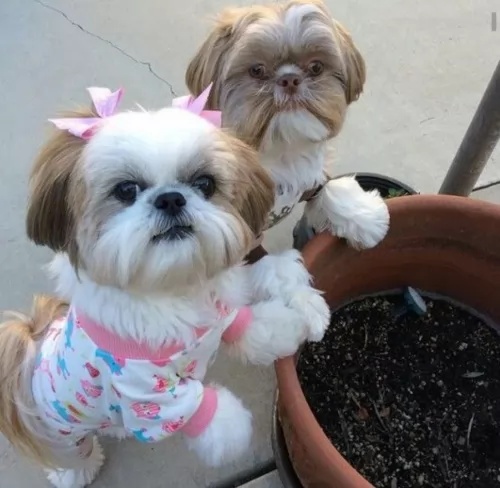 1.Feeding the puppy – this is a toy dog so don’t overfeed. They have a tendency to become obese. Calorie and weight level need to be calculated with any diet you feed. The diet should be high quality with plenty of protein made for toy dogs. Feed the puppy at least 3 times a day, maybe four in very small amounts, never more than ½ cup per day.
1.Feeding the puppy – this is a toy dog so don’t overfeed. They have a tendency to become obese. Calorie and weight level need to be calculated with any diet you feed. The diet should be high quality with plenty of protein made for toy dogs. Feed the puppy at least 3 times a day, maybe four in very small amounts, never more than ½ cup per day.
2.Feeding the adult - this is a toy dog so don’t overfeed. They have a tendency to become obese. Calorie and weight level need to be calculated with any diet you feed. The diet should be high quality with plenty of protein made for toy dogs. Feed the adult once or twice a day in larger amounts than the puppy but never more than ¾ of a cup per day.
3.Points for Good Health - most Shih Tzu’s are hardy with exceptionally good health.
This is a pampered, not high energy dog. However, she still needs playtime, which can be indoors and short walks outdoors every day.
 This is a low maintenance dog as the short coat will only require a brush twice a week. As you brush him take note of any unusual lumps you come across.
This is a low maintenance dog as the short coat will only require a brush twice a week. As you brush him take note of any unusual lumps you come across.
Also, while grooming him, check the inside of his ears and look for signs of redness and the possibility of an ear infection. Look into his eyes and make sure they are clear and bright.
Check inside his mouth, if he will allow you to, and make sure he doesn’t have any bad teeth. These could cause a lot of pain and also cause problems with body organs such as the heart and the kidneys.
This is a big dog that is going to need plenty of exercise. He is not suited to small spaces in the city but will require a fairly large property in the suburbs or the countryside. He will become frustrated and more dangerous to others if left day after day without exercise.
The Sindh Mastiff is an energetic dog, so it is important do ensure he has good food to eat to ensure he remains fit and energetic. For convenience, commercially manufactured dog foods can be a good choice, but only when you choose the better quality ones with vitamins and minerals in them.
Some of the inferior food brands load the food with bad fillers, colorants and preservatives and these can all make your pet sick. Try and give him some home made food too – nothing exotic – just plain boiled chicken, brown rice or pasta and spinach, sweet potatoes and carrots.
Your dog will thank you for such a plain diet as then he isn’t plagued by digestive problems. Chop it all up and add it into the dry kibble a couple of times a week. Try and include some raw meat into the diet occasionally to avoid skin problems. Always ensure a constant supply of fresh, cool water.